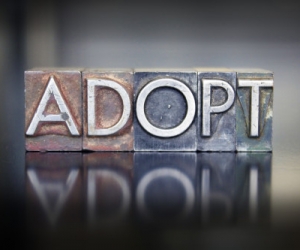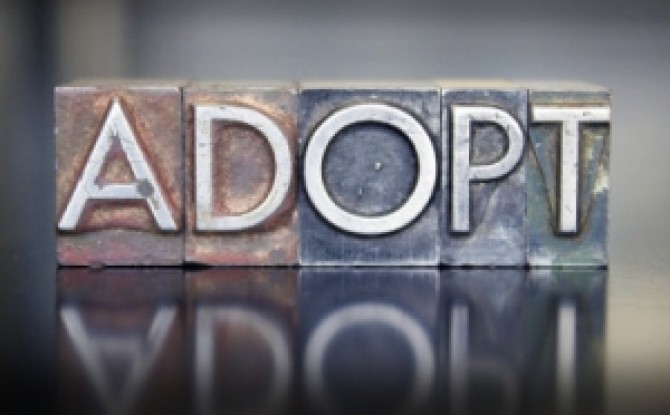March 20, 2012 (See 2015 addendum @ the bottom of the article.)
Legal Surrogacy – To adopt, or not to adopt…???
 Surprisingly, that has been one of the most asked questions by parents of children born with the assistance of a surrogate mother. In many cases, the carrier’s name may be removed from the child’s original birth certificate by a proceeding called a pre-birth order. Some states do not provide for pre-birth orders. Those that do, may or may not replace the carrier’s name with that of the non-biological intended parent. California, for instance, does offer the ability to include the non-biological parent’s name on the child’s original birth certificate, and that very significant step is often mistakenly viewed as a replacement for a second parent adoption, which is the only definitive way to establish parental rights between a non-biological parent and a child born through legal surrogacy.
Surprisingly, that has been one of the most asked questions by parents of children born with the assistance of a surrogate mother. In many cases, the carrier’s name may be removed from the child’s original birth certificate by a proceeding called a pre-birth order. Some states do not provide for pre-birth orders. Those that do, may or may not replace the carrier’s name with that of the non-biological intended parent. California, for instance, does offer the ability to include the non-biological parent’s name on the child’s original birth certificate, and that very significant step is often mistakenly viewed as a replacement for a second parent adoption, which is the only definitive way to establish parental rights between a non-biological parent and a child born through legal surrogacy.
Legal Surrogacy is an emotionally, and financially, exhausting process. It is a true leap of faith. Couples considering surrogacy must juggle a myriad of concerns, the least of which being the cost. With gestational surrogacy tabs running as high as $150,000.00, budgeting is a must. Lawyer’s fees are often lumped together in surrogacy accounting statements, and some agencies do not include the cost of a second parent adoption in order to keep the numbers low. Often, the cost of a pre-birth order is less than a second parent adoption.
In order to understand why a second parent adoption is vital, you must understand what a pre-birth order is, and what protections it provides. Pre-birth orders are court orders that are obtained by filing a petition in the appropriate court in the state in which the child will be born. Often, these petitions are not filed in the county where the carrier lives, but in a county which has a judge who understands the importance of pre-birth orders and grants them upon the motion of an attorney representing the intended parents. This in itself may create a problem.
Some states may not recognize the relationship created by the pre-birth order because of the lack of a full judicial process attendant to a pre-birth order. For an issue to be precluded from challenge, for instance the issue of a non-biological parent’s relationship to a child born through surrogacy, the court looks at the process by which that issue has been established. The reason why adoption orders from one state are valid in every state, regardless of the gender of the parents, is because the judicial process of the adoption. The state, for all intents and purposes, becomes and “adversary” to the adoptive parents in the adoption process. The state performs background checks, it orders that fingerprints be taken, mandates that a homestudy is performed by a licensed social worker to ensure that the child’s prospective residence is safe and clean and essentially verifies that all adoption requirements by the petitioning parent, or parents. The adoption order is the product of a fully litigated judicial process. Because this rigorous process is not part of a pre-birth order proceeding, states which do not offer pre-birth orders may not recognize a relationship created in such an order.
Furthermore, some courts, through a pre-birth order, will add the name of the non-biological parent to the original birth certificate if that person is married to the biological parent. For same-sex couples, this can present a fatal issue, particularly if the non-biological parent’s relationship to the child is being challenged in a state that does not recognize same-sex marriage. These situations usually arise upon the dissolution of a relationship and during the custody/visitation/support aspect of that process.
In New York County, Legal Surrogacy Judge Kristin Booth Glen, in a case entitled In the Matter of Sebastian[i] discusses the issue of establishing parental rights for a non-biological parent specifically. The case involves married lesbian couple who used an anonymous sperm donor to have a child. Glen concludes, “that although [the] petitioner [non-biological parent] already has a legally protected parental relationship with Sebastian [through a marriage recognized in New York] and, even in the absence of that legal relationship, could utilize several less intrusive, expensive and time consuming methods of establishing one, the only remedy available here that would accord the parties full and unassailable protection is a second-parent adoption pursuant to New York Domestic Relations Law (“DRL”) § 111 et seq.” Glen further states, “that a judicial order of adoption in one state must be afforded full faith and credit in every state, and that there can be no “public Policy” exception to that mandatory recognition…”.
The Matter of Sebastian case is an amazing confluence of family law, Constitutional law and reproductive law, with the ultimate conclusion that same-sex parents need to adopt to secure the non-biological parent’s rights to their children. It is a broad and definitive statement that applies to all same-sex families, regardless of how their children were conceived.
While parents going through legal surrogacy must navigate financial and emotional waters, as well as an unsure legal landscape, the last step in the process, the second parent adoption, may seem like an afterthought. It is, however, the only way to complete the process and ensure that each parent has a permanent and portable legal relationship with the child.
ADDENDUM (July 17, 2015) – It seems like ages ago when I wrote this piece, and the gay rights movement has literally transformed the world in those short 3 years. While marriage equality is the law of the land in the United States, many people misinterpret this truly revolutionary civil rights gain as having the same transformative and direct effect on family law, specifically as it applies to the rights of a non-biological child to their bio parent’s spouse, even if achieved through legal surrogacy.
While it is true that many states have what is called a “martial presumption of parentage,” the truth about this is that it is applied differently in different states. For instance, in New York state, where I practice, there is specific case law that holds that the marital presumption of parentage does not apply to same-sex couples. That case is called “Matter of Paczkowski v. Paczkowski.” In that case, the appellate division of the Second Department of New York, the state’s intermediate appellate court, held that the “presumption of legitimacy… is one of a biological relationship, not a legal status.”
In essence, the court says that a marriage does not create a legal right between a non-biological parent and a child. While it may be an indication of intent to be a parent, as would a non-biological parent’s name on a birth certificate (as echoed in “Matter of Sebastian” as mention in the body of this article) the only way to actually create the legal relationship that guarantees the security that all same-sex families need, is through an adoption order, and in some states, a parentage order. Unfortunately, New York currently does not have the capacity to issue a parentage order but there is legislation in committee in Albany that may change that.
In our ever evolving world where gay couples and, more particularly, gay families are becoming more common place and understood, there are still areas of the law that directly affect our lives that continue to fall short of protecting our families in the ways that they must be protected. Creating family security is of the utmost importance and it is the responsibility of every gay parent to make sure that happens.


 Surprisingly, that has been one of the most asked questions by parents of children born with the assistance of a surrogate mother. In many cases, the carrier’s name may be removed from the child’s original birth certificate by a proceeding called a pre-birth order. Some states do not provide for pre-birth orders. Those that do, may or may not replace the carrier’s name with that of the non-biological intended parent. California, for instance, does offer the ability to include the non-biological parent’s name on the child’s original birth certificate, and that very significant step is often mistakenly viewed as a replacement for a second parent adoption, which is the only definitive way to establish parental rights between a non-biological parent and a child born through legal surrogacy.
Surprisingly, that has been one of the most asked questions by parents of children born with the assistance of a surrogate mother. In many cases, the carrier’s name may be removed from the child’s original birth certificate by a proceeding called a pre-birth order. Some states do not provide for pre-birth orders. Those that do, may or may not replace the carrier’s name with that of the non-biological intended parent. California, for instance, does offer the ability to include the non-biological parent’s name on the child’s original birth certificate, and that very significant step is often mistakenly viewed as a replacement for a second parent adoption, which is the only definitive way to establish parental rights between a non-biological parent and a child born through legal surrogacy.